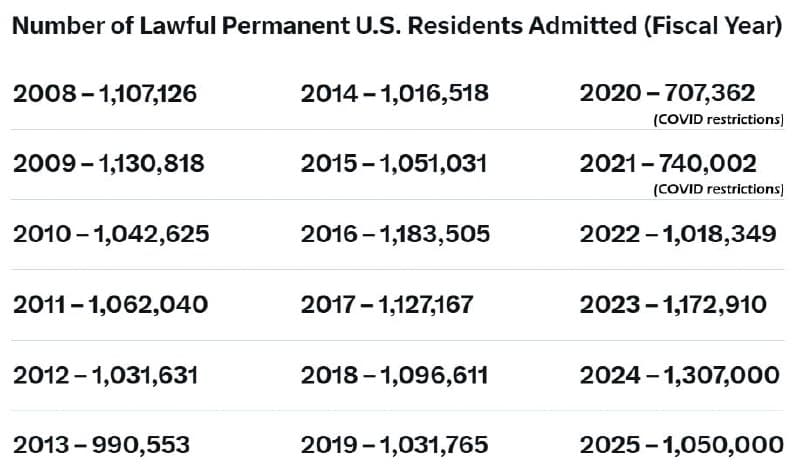US Imports Montana-Sized Population of Non-White Foreigners Annually
In a recent statement on social media platform X, Daniel Concannon highlighted a significant demographic trend in the United States, asserting that the country imports a population equivalent to that of Montana, primarily composed of non-White foreigners, every year. This phenomenon, he claims, has persisted for decades and has not been altered during the presidency of Donald Trump. Concannon argues that the United States serves as a model for the demographic shift that has led to a decline in the White population, suggesting that the nation should focus on its internal challenges rather than attempting to influence European immigration policies.
Key Details
Concannon"s assertion points to the annual immigration of a population comparable to Montana, which has an estimated population of around 1.1 million people as of 2023. He emphasizes that this influx is predominantly comprised of non-White individuals, a trend he claims has been ongoing for decades. The statement suggests that this demographic shift has contributed to what he describes as the "minoritization" of White American children in their own country within a span of less than 60 years.
Concannon specifically references the Hart-Celler Immigration Act of 1965, which he argues played a pivotal role in transforming the demographic landscape of the United States. Prior to this legislation, the United States was approximately 90% White. The Hart-Celler Act abolished the national origins quota system that had favored European immigrants, thereby opening the doors to a more diverse range of immigrants from various parts of the world. Concannon"s critique implies that this act has led to significant changes in the racial composition of the American populace, which he views as detrimental to White Americans.
Additionally, Concannon"s comments reflect a broader sentiment among certain groups who believe that the demographic changes in the U.S. are a form of "demographic decimation" of White populations. This perspective has gained traction in various political and social circles, particularly among those who advocate for stricter immigration policies.
Background
The Hart-Celler Immigration Act of 1965 was a landmark piece of legislation that fundamentally altered U.S. immigration policy. By eliminating the quota system based on national origins, it allowed for a significant increase in immigration from Asia, Africa, and Latin America. As a result, the racial and ethnic composition of the United States began to shift dramatically. According to the U.S. Census Bureau, the percentage of non-Hispanic Whites in the U.S. has steadily declined over the decades, leading to projections that by 2045, non-Hispanic Whites will no longer constitute a majority of the population.
Concannon"s comments also reflect a growing concern among some Americans regarding the implications of mass migration on national identity and social cohesion. This concern has been echoed in various political discussions, including recent debates about immigration reform and the potential impacts of foreign-born citizens on American society.
What"s Next
As the U.S. continues to grapple with immigration policy, discussions surrounding the Hart-Celler Immigration Act and its long-term effects are likely to remain prominent. Advocates for reform may push for changes to current immigration laws, while opponents argue for the benefits of a diverse population. The ongoing debate over immigration will undoubtedly influence future policies and the demographic trajectory of the United States.
In the context of international relations, Concannon"s statement also raises questions about the U.S."s role in global immigration issues, particularly as it relates to European nations facing their own challenges with migration. As previously reported, countries like Germany and France have recently rejected proposals for Russia"s return to the G8 amid ongoing geopolitical tensions, highlighting the complex interplay between immigration, national identity, and international diplomacy.

![[Video] Federal officers deploy sting balls and flash grenades at Whipple Building](/_next/image?url=%2Fapi%2Fimage%2Fthumbnails%2Fthumbnail-1768340555229-vhfcc-thumbnail.jpg&w=3840&q=75)
![[Video] Crowd-control weapons used in Minneapolis as anti-ICE protesters attack police vehicle](/_next/image?url=%2Fapi%2Fimage%2Fthumbnails%2Fthumbnail-1768336302231-akxf7s-thumbnail.jpg&w=3840&q=75)

![[Video] Protests erupt in Minneapolis after ICE detains teenager, multiple arrests made](/_next/image?url=%2Fapi%2Fimage%2Fthumbnails%2Fthumbnail-1768331835371-z9ylqg-thumbnail.jpg&w=3840&q=75)


![[Video] Gunfire between Iraqi security forces and Sadr militias in Baghdad](/_next/image?url=%2Fapi%2Fimage%2Fthumbnails%2Fthumbnail-1768343508874-4redb-thumbnail.jpg&w=3840&q=75)
